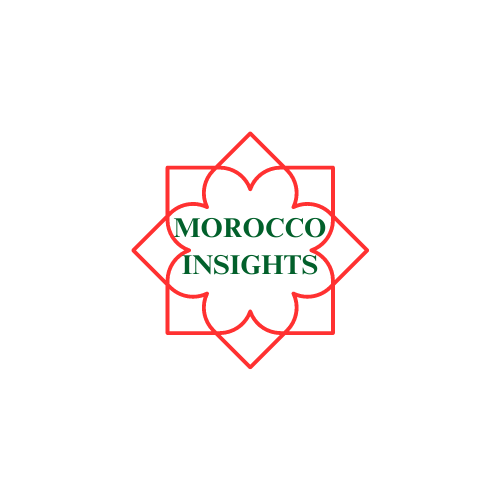Moroccan cuisine is known for its vibrant flavors and unique combination of spices. From the aromatic spices like cumin, coriander, and turmeric to the fresh ingredients like tomatoes, onions, and garlic, Moroccan cooking is a delightful fusion of Mediterranean, Arabic, and Berber influences. Whether it’s the rich stews, flavorful tagines, or delectable couscous dishes, the main ingredients used in Moroccan cooking are designed to tantalize your taste buds and transport you to the bustling markets of Marrakesh. With a blend of exotic spices, herbs, and fresh produce, Moroccan cuisine promises a culinary adventure like no other. Moroccan cuisine is rich and vibrant, filled with a diverse range of flavors and ingredients. The main ingredients used in Moroccan cooking can be categorized into different sections, including grains, protein, vegetables, herbs and spices, fruits, nuts, dairy, oils and fats, sweeteners, and beverages. Let’s take a closer look at each of these categories and discover the key ingredients that make Moroccan cuisine so special.
Grains
Couscous is a staple in Moroccan cuisine and is made from crushed durum wheat. It is often served with a variety of meat and vegetable dishes, soaking up all the delicious flavors. Another popular grain used in Moroccan cooking is bread, particularly flatbreads like khobz and msemen. These breads are consumed daily and are typically enjoyed with tagines or used to scoop up different dips and sauces.
Protein
Moroccan cuisine offers a variety of protein options that cater to different tastes and preferences. Meat, such as lamb, beef, and chicken, plays a significant role in Moroccan dishes. It is often slow-cooked with aromatic spices and served with couscous or bread. Seafood, especially fish like sardines and monkfish, is also commonly used in coastal regions. Legumes, such as chickpeas and lentils, are essential sources of protein in Moroccan cuisine, making them perfect for vegetarian and vegan dishes.
Vegetables
Morocco is known for its vibrant and flavorful vegetable dishes. Tomatoes, zucchini, eggplant, carrots, bell peppers, onions, and potatoes are frequently used in Moroccan cooking. They are often combined with meat or legumes to create hearty stews, tagines, or vegetable-based dishes. These vegetables bring a burst of color, flavor, and nutrition to Moroccan meals.
Herbs and Spices
Herbs and spices are the heart and soul of Moroccan cuisine, creating distinct flavors and aromas. Cumin, coriander, paprika, cayenne pepper, ginger, saffron, cinnamon, turmeric, mint, and parsley are some of the key herbs and spices used in Moroccan cooking. These ingredients are carefully blended to create complex and flavorful spice mixes like Ras el Hanout and Baharat, which are used to season different dishes.
Fruits
Morocco is blessed with an abundance of fruits, many of which are used in traditional Moroccan recipes. Oranges, lemons, apricots, dates, and figs feature prominently in Moroccan cuisine. These fruits are used in both savory and sweet dishes, adding a delightful freshness and natural sweetness.
Nuts
Nuts are a popular ingredient in Moroccan cooking, bringing a delightful crunch and rich flavor to dishes. Almonds, walnuts, and pistachios are commonly used in Moroccan recipes. They are often toasted and chopped to enhance their nutty taste and used as toppings in savory dishes or incorporated into desserts.
Dairy
Dairy products like yogurt and cheese are also integral to Moroccan cuisine. Yogurt is a common ingredient in Moroccan marinades and sauces, adding a tangy and creamy element to dishes. Soft and hard cheeses, such as Moroccan goat cheese and Jben, are enjoyed on their own or used as fillings in pastries and breads.
Oils and Fats
Olive oil and argan oil are two primary cooking oils used in Moroccan cuisine. Olive oil is highly valued for its rich flavor and health benefits, while argan oil adds a unique nuttiness to dishes. Butter is also used in Moroccan cooking, particularly in pastries and desserts, adding richness and flavor.
Sweeteners
Moroccan cuisine strikes a beautiful balance between savory and sweet flavors. Honey and granulated sugar are commonly used as sweeteners in Moroccan dishes and desserts. They provide a touch of sweetness and enhance the flavors of various dishes, including traditional Moroccan pastries like Baklava.
Beverages
Moroccan cuisine offers a variety of refreshing and aromatic beverages. Green tea, known as “Moroccan mint tea,” is an integral part of Moroccan culture. It is often served with fresh mint leaves and sugar, creating a flavorful and soothing drink. Mint tea is another popular beverage enjoyed throughout Morocco. Moroccan coffee, known for its unique spiced flavor, is also a favorite among locals and visitors alike.
In conclusion, Moroccan cuisine is a delightful blend of flavors and ingredients that come together to create a truly exceptional dining experience. From grains like couscous and bread to the aromatic herbs and spices, fresh vegetables, protein options, fruits, nuts, dairy products, oils and fats, sweeteners, and refreshing beverages, every ingredient plays its part in making Moroccan cuisine so unique and delicious. So, whether you’re exploring Moroccan recipes or enjoying a traditional Moroccan meal, you can savor the richness and diversity of these main ingredients used in Moroccan cooking.
